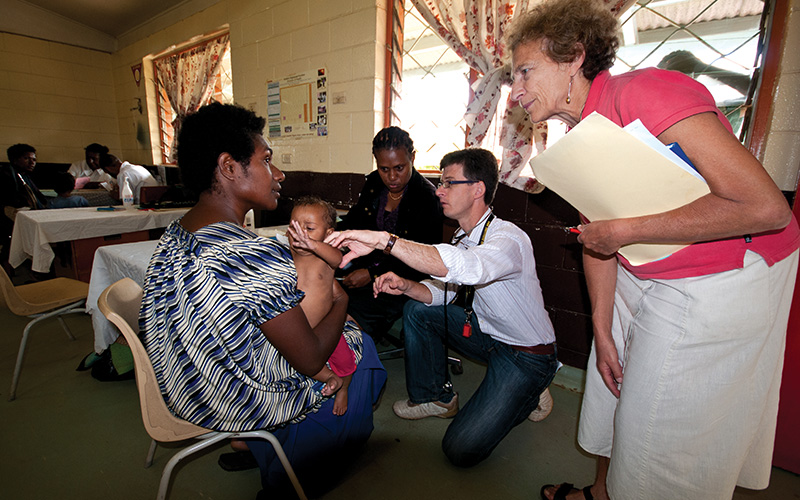Search

Running any research project is a feat of logistical gymnastics – and often, you don’t know what can go wrong until it happens.

One hundred years after the discovery of insulin, technology advancements are being heralded as the dawn of a new era for managing type 1 diabetes (T1D) in young people.

Research into the potential health impacts of vaping is starting to back up concerns that electronic cigarettes (e-cigarettes) are not as benign as many people think.

New research has revealed the extraordinary impact of a collaborative project between The Kids Research Institute Australia and the Papua New Guinea Institute of Medical Research, with rates of hospitalisation for pneumonia dropping by nearly 60 per cent thanks to the introduction of the pneumococcal vaccine

The Kids Research Institute Australia researchers are urging governments to listen more to what kids need.

Patricia Ilchuk can still recall the day in August 2020 when her daughter Manna – then five weeks old – had her first seizure.

In early 2021, The Kids Research Institute Australia researcher Dr Amy Finlay-Jones led a global team in trying to answer that question to help better prioritise mental health spending.
This paper is the first to explore whether differences in time use by children of Asian-born parents may help to explain the observed differentials in school achievements
This Article explains the negative health impacts that energy drinks can have upon children and it also examines the law concerning energy drinks in-depth
We explored midwives' attitudes and values regarding maternal and childhood vaccination, their perceived role in vaccine advocacy
